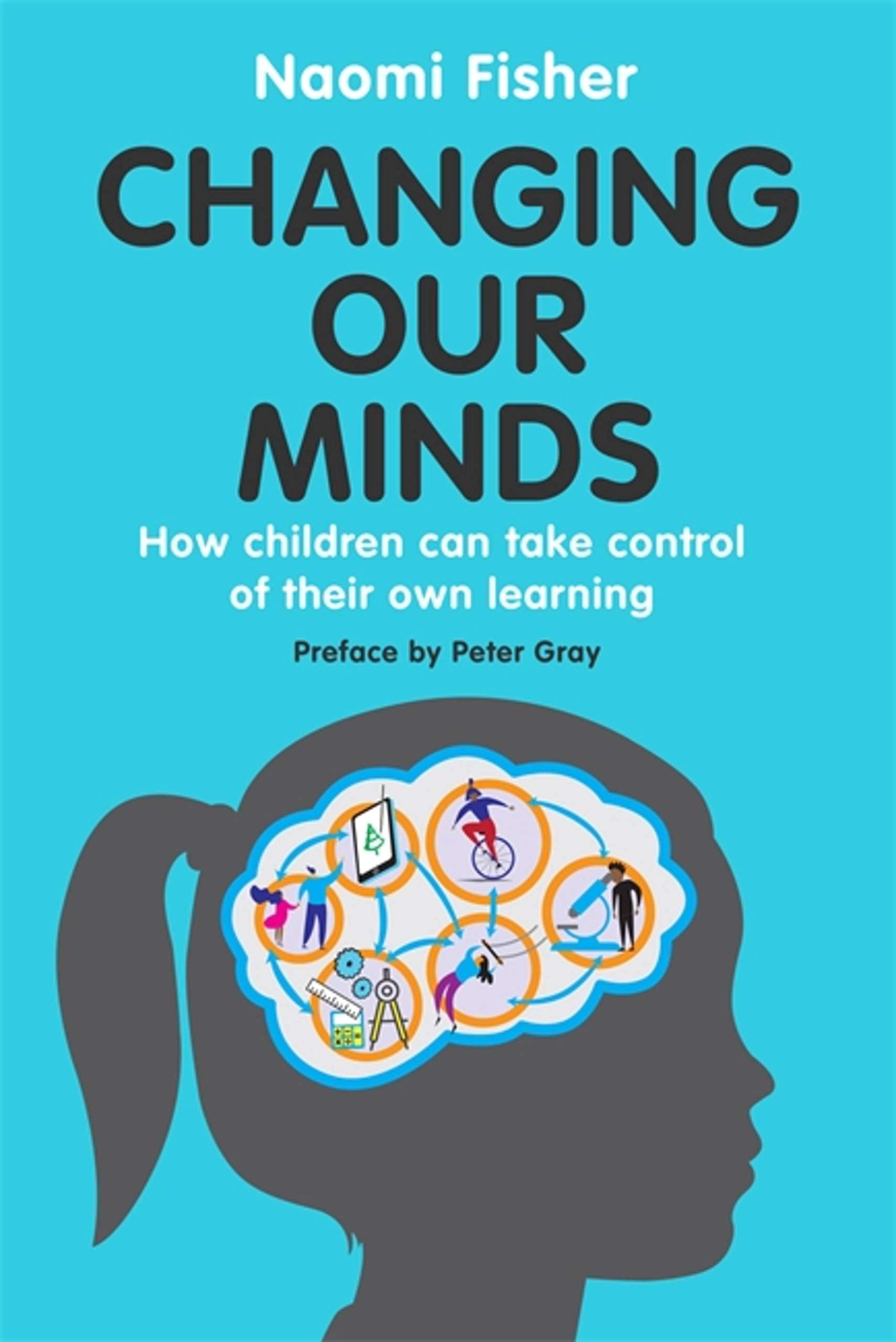
In her new book, Changing Our Minds: How children can take control of their own learning, Dr. Naomi Fisher wants to instill a strong belief within us when it comes to educating our children: Children can direct their own learning. Fisher’s argument is two-pronged; schooling our children is often detrimental to their development and making room for children to make more and more decisions about their education is not only possible but beneficial.
Fisher isn’t all that different from the people who say, “Kids don’t have time to be kids anymore.” She just takes it a step further and does something about it. If you’re wanting your kids to have time to be kids then you will find her book immensely helpful.
Schooling is Built on Behaviorism
Schooling has more in common with animal training than it has in common with learning. The fact that repetition is a key to developing mastery of valuable skills has been used as a justification for the way we teach everything. Do the thing. Get the reward. Do the thing. Get the reward. The idea is that if the reward is handed out enough times then we’ll end up doing the thing without getting the reward. We got the idea from Pavlov’s dog. It’s not that Pavlov was wrong. Even dogs do things for other reasons than food. Fisher asserts that much of the world has abandoned behaviorism as the primary framework for understanding behavior. New paradigms inspired by Lev Vygotsky and Jean Paget have led to recent researchers like Mihaly Csikszentmihalyi and Alison Gopnik, who have helped us see children as perceptive and self-motivated. In other words, learning is a bit more complicated than getting a dog to drool.
We Have a Schooling Mindset

If we do just as we’re told in school we may start to internalize that school is the only way things are done. Fisher writes, “Schools are carefully constructed learning environments which aim to deliver a particular type of learning.” Since school is the main priority of so many families, kids get the message that school learning is the only thing that matters. That may not be too bad except for the children who excel especially at activities outside of school. They often start to see themselves as stupid or lazy because of their schooling mindset.
Learning is actually pretty messy it turns out. Fisher uses the example of a single school lesson on fractions.
The lesson may be about what a denominator is but a few different children may be thinking vastly different things from, “I want to be outside,” to, “I like math. This is fun.” The schooling mindset says that the kid who wants to be outside is lazy while the kid who wants to do math is a good worker.
What is Self-Directed Learning?
The solution to our narrow view of education and the schooling mindset is to recognize the child’s ability to educate themselves, or to direct their education. Imagine the student is like the director of a movie. It’s not just them in a camera, although in rare cases it feels that way. A good director uses everything at their disposal. Self-directed students use the skills of others to help them build their education. They use valued adults and peers to work on projects and learn tons of thins in the process.
Less Schooling, More Self-Direction
One of the challenges many families have who want to pursue self-directed education is that they can’t physically do it; they work out of the house and there are no self-directed schools in their area. Parents in this situation can do things to mitigate the issues that arise from schooling. Fisher advises that parents can make every effort to hand over autonomy to the child. Instead of seeing themselves as the overseer in their child’s education they can be a trusted guide. We all recognize ways that schools can be too hard on kids, not giving them time to be kids. What we don’t realize is that we duplicate these efforts when they come home. We hover over all these small activities they do making sure they’re keeping up. This is a mistake from Fisher’s perspective. We can do better.
Overall, if you’re a parent and you are interested in helping your child take control of their own education then Changing Our Minds is a fantastic read. If your child is having a difficult time in school then Fisher’s book may give you some insight as to why. School is ubiquitous with misery in our culture. We’re so used to kids complaining about school that it’s become white noise. Fisher thinks we should pay attention to that noise and take it seriously.
Pick up a copy of Naomi Fishers's book on Amazon!
